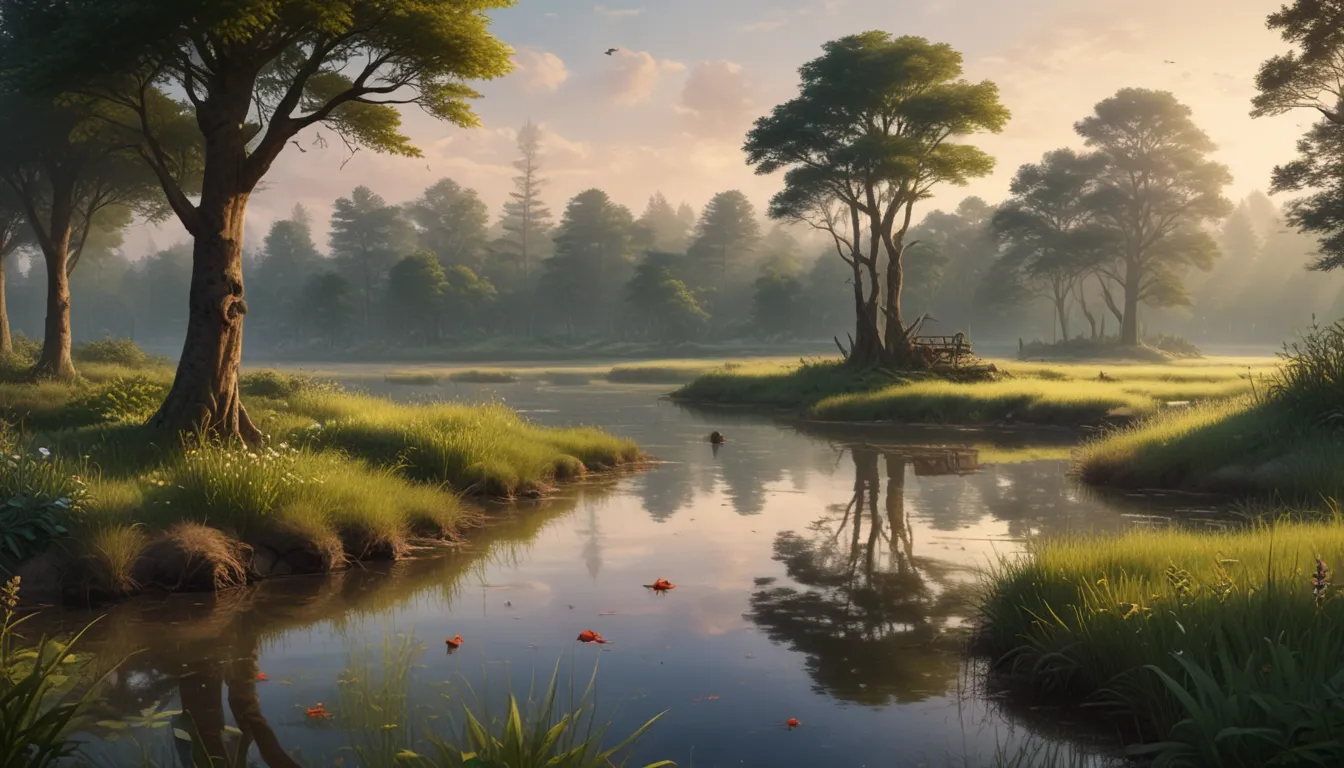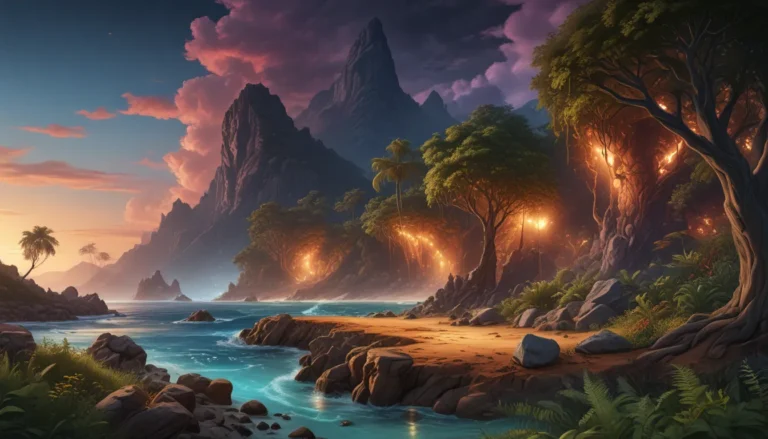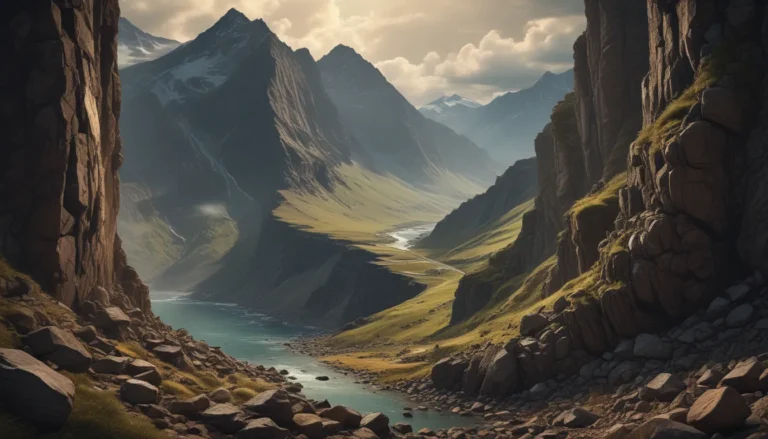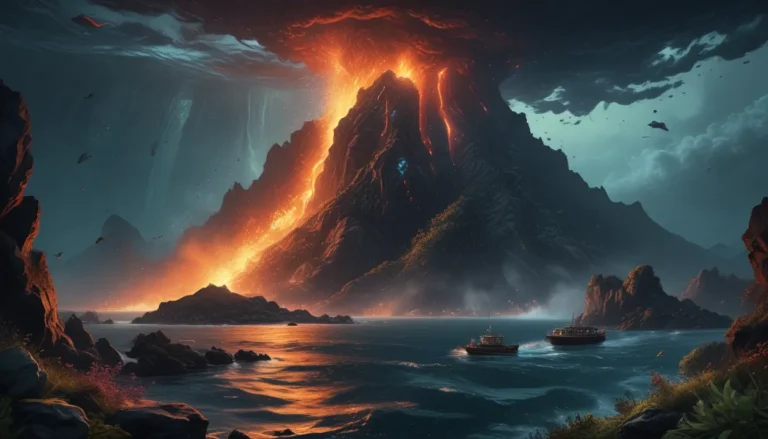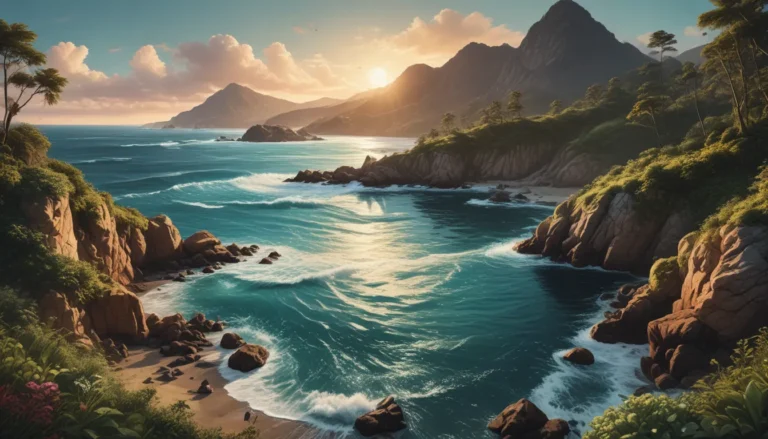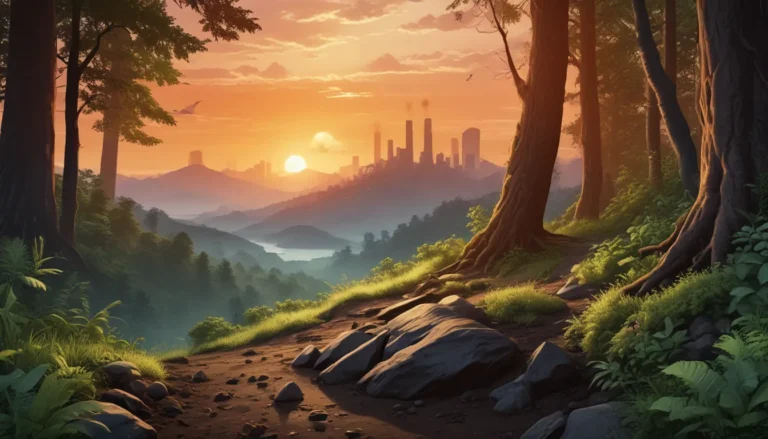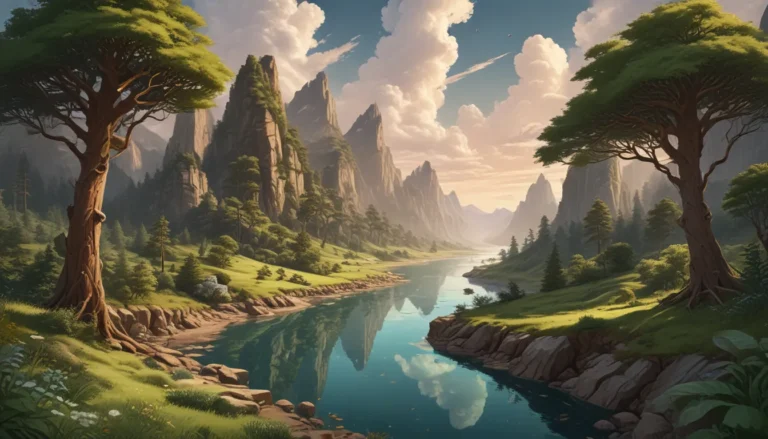A Note About Images: The images used in our articles are for illustration purposes only and may not exactly match the content. They are meant to engage readers, but the text should be relied upon for accurate information.
Wetland ecosystems are truly a marvel of nature, teeming with life and providing invaluable benefits to our planet. From acting as natural water purifiers to serving as essential habitats for diverse wildlife, wetlands play a vital role in maintaining the health and beauty of our world. In this article, we will delve into 20 unbelievable facts about wetland ecosystems that will leave you in awe of their significance and value. So, join us as we uncover the wonders of wetlands and discover why these unique environments are worth cherishing and protecting.
The Beauty and Importance of Wetland Ecosystems
Wetlands are like nature’s superheroes, performing essential functions that benefit both humans and wildlife. Let’s explore some key takeaways about the incredible world of wetland ecosystems:
- Wetlands are nature’s water purifiers, cleansing and filtering water to keep it safe for all living beings. They are often referred to as the Earth’s “kidneys” for their ability to remove toxins and pollutants.
- These unique habitats act as natural sponges, absorbing excess water during floods and storms, thereby reducing the risk of downstream flooding and protecting nearby communities.
- Wetlands store vast amounts of carbon, helping to mitigate climate change by trapping carbon dioxide and other greenhouse gases in their dense vegetation.
The Remarkable Diversity of Wetland Ecosystems
Wetlands are home to a diverse range of plant and animal species, making them biodiversity hotspots with a wealth of life and activity. Here are some fascinating facts about the inhabitants of wetland ecosystems:
- The Everglades in Florida is the largest wetland ecosystem in the United States, covering approximately 1.5 million acres.
- Wetlands provide vital breeding grounds for many fish and aquatic species, offering a safe haven for their young to thrive.
- The Pantanal in South America is home to the largest concentration of crocodiles in the world, showcasing the incredible biodiversity found in wetland environments.
The Ecological and Economic Value of Wetlands
In addition to their ecological importance, wetlands also provide numerous economic benefits and serve as valuable resources for local communities. Here are some notable facts about the ecological and economic value of wetlands:
- Wetlands support recreational activities such as birdwatching, fishing, and boating, attracting tourists and contributing to local economies.
- The Mississippi River Delta is one of the largest wetland ecosystems in the world, serving as a critical habitat for a wide range of fish, birds, and other wildlife.
- Wetlands improve water quality by naturally filtering excess nutrients and pollutants, making the water safe for aquatic life and human consumption.
The Cultural and Inspirational Significance of Wetlands
Wetlands have long inspired artists, photographers, and nature enthusiasts with their serene beauty and rich biodiversity. Here are some facts about the cultural and inspirational significance of wetland ecosystems:
- The Sundarbans in Bangladesh is the largest mangrove wetland in the world and a UNESCO World Heritage site, home to the iconic Bengal tiger.
- Wetlands connect with the Great Barrier Reef, providing vital nutrients and acting as nurseries for many marine species, highlighting the interconnectedness of diverse ecosystems.
- Wetlands have been a source of inspiration for artists and photographers, offering endless creative possibilities with their breathtaking landscapes and intricate wildlife.
The Conservation and Restoration of Wetland Ecosystems
Recognizing the importance of wetlands and their invaluable contributions to our planet is essential for their conservation and restoration. Here are some facts about the conservation and restoration of wetland ecosystems:
- Wetlands are internationally recognized for their importance, with designated Ramsar sites highlighting their global significance and ecological value.
- The Florida Everglades is home to the endangered Florida panther, emphasizing the critical role of wetlands in providing essential habitat for threatened species.
- Wetlands act as natural buffers against coastal erosion, protecting valuable coastal ecosystems and human settlements from the destructive forces of waves and tidal forces.
In conclusion, wetland ecosystems are truly remarkable environments that play a vital role in sustaining life on Earth. By understanding and appreciating the significance of wetlands, we can work towards their conservation and restoration, ensuring a sustainable future for all living beings. Let’s celebrate and advocate for the protection of these incredible ecosystems, preserving their natural beauty and ecological functions for generations to come.
Frequently Asked Questions
Q: What are wetland ecosystems?
A: Wetland ecosystems are areas of land saturated or flooded with water, characterized by unique vegetation and soil conditions.
Q: Why are wetlands important?
A: Wetlands are important for their role in filtering water, regulating water flow, and providing habitat for diverse species.
Q: What kind of wildlife can be found in wetlands?
A: Wetlands are home to a wide range of species, including birds, fish, amphibians, reptiles, and mammals.
Q: Can wetlands be restored if they have been damaged?
A: Yes, wetlands can be restored through various techniques, such as removing invasive species and replanting native vegetation.
Q: How can individuals contribute to wetland conservation?
A: Individuals can support wetland conservation by volunteering for clean-up efforts, raising awareness, and advocating for the protection of wetland ecosystems.
In conclusion, wetlands are invaluable ecosystems that deserve our attention and protection. By recognizing their significance and value, we can ensure a sustainable future for our planet and all its inhabitants. Let’s continue to explore, appreciate, and preserve the wonders of wetland ecosystems for generations to come.
